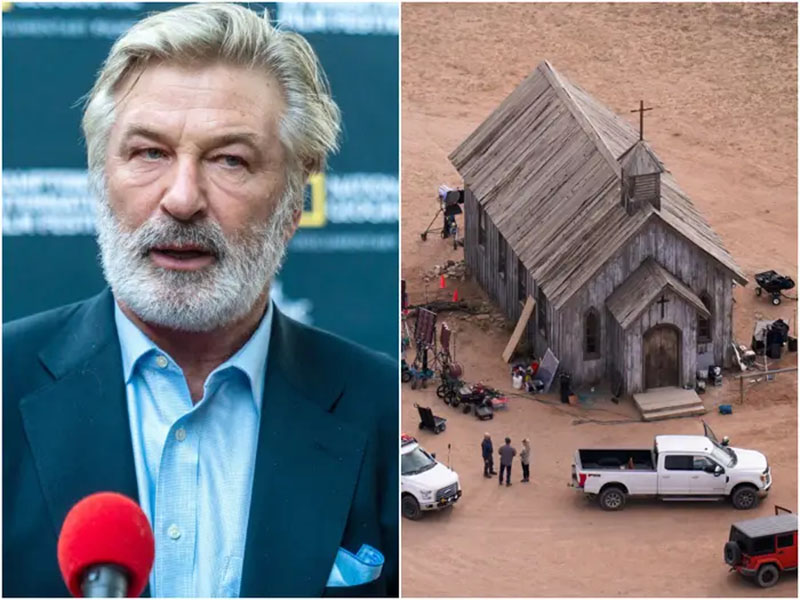
Photo Credit: File Photo
A New Mexico judge is set to deliberate on Alec Baldwin's request to dismiss a grand jury indictment against him in a court hearing scheduled for Friday. The indictment, issued in January, charges Baldwin with involuntary manslaughter following the tragic shooting of cinematographer Halyna Hutchins on October 21, 2021, at a movie ranch near Santa Fe.
Baldwin, who was a lead actor and co-producer on the Western film "Rust," has pleaded not guilty. His legal team has been pushing for the charges to be dropped, arguing that prosecutors mishandled grand jury proceedings and ignored crucial exculpatory evidence and witnesses. The involuntary manslaughter charge carries a potential maximum sentence of 1.5 years in prison.
The incident occurred during a rehearsal when Baldwin was pointing a gun at Hutchins. The revolver discharged, killing Hutchins and injuring the film's director, Joel Souza. Baldwin has consistently claimed that he pulled back the gun's hammer but did not pull the trigger.
In their motion to dismiss, Baldwin's attorneys contend that the grand jury received misleading and biased testimony regarding the revolver involved in the incident. They argue that the proceedings were unfairly skewed against Baldwin.
Special prosecutors, however, maintain that they adhered to proper grand jury protocols and accuse Baldwin of attempting to evade responsibility. They point to inconsistencies in his statements to law enforcement, workplace safety regulators, and in a televised interview. A jury trial is currently set for July.
Attention shifted squarely onto Baldwin after a judge sentenced the film's weapons supervisor, Hannah Gutierrez-Reed, to the maximum penalty of 1.5 years in prison for her role in Hutchins' death. Previously, prosecutors had dropped an initial involuntary manslaughter charge against Baldwin after being informed that the gun may have been modified and malfunctioned. However, a new analysis led prosecutors to reinstate the case.
The indictment offers two potential legal standards for prosecuting Baldwin: one based on negligent use of a firearm, and the other requiring proof beyond a reasonable doubt that Baldwin caused Hutchins' death without "due caution" or "circumspection," essentially showing total disregard for the safety of others.
Baldwin's defense also claims that prosecutors steered the grand jury away from testimony by key witnesses, including the film's director Joel Souza, assistant director and safety coordinator Dave Halls, and props master Sarah Zachry. Halls had previously pleaded no contest to negligent handling of a firearm and served six months of unsupervised probation.
The recent trial of Gutierrez-Reed provided a glimpse into how Baldwin's trial might unfold. Testimonies and closing arguments highlighted Baldwin's dual role as co-producer and lead actor, with both sides analyzing video footage for signs of safety protocol failures.
Prosecutors argued that Gutierrez-Reed inadvertently brought live ammunition onto the set, violating safety protocols and leading to the fatal incident. Gutierrez-Reed, appealing her conviction, claimed during sentencing that she did her best despite inadequate time, resources, and staffing.
Following the shooting, "Rust" resumed filming in Montana under an agreement with Halyna Hutchins' husband, Matthew Hutchins, who became an executive producer. A wrongful death lawsuit filed by Matthew Hutchins and the Hutchins' son was settled under undisclosed terms.
Baldwin's attorneys revealed that he was offered a deal to plead to a "minor offense" before the grand jury was convened, but the offer was unexpectedly withdrawn before he could respond.
As the court hearing approaches, the decision on Baldwin's motion to dismiss will be crucial in determining the next steps in this high-profile case.
















